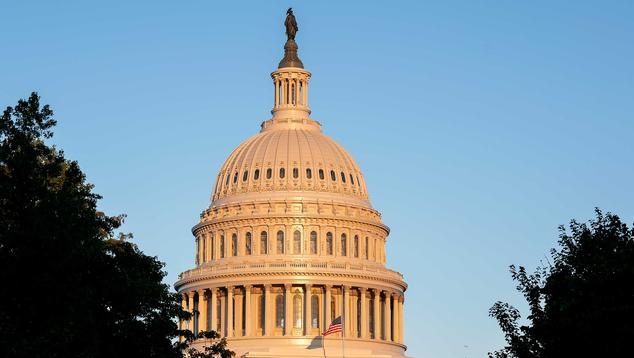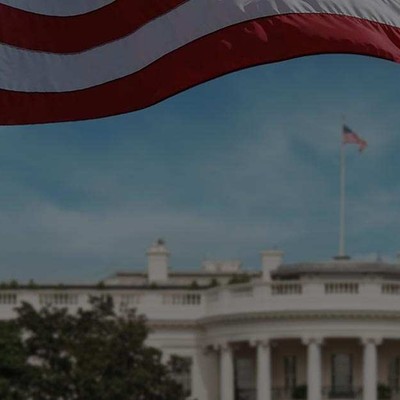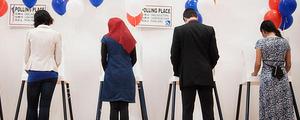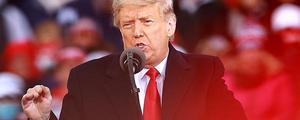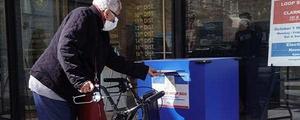When the dust settles after Election Day, the newly elected president will face the challenge of following through on the promises and positions he took on the core issues of the day during the campaign. The temptation for a chief executive is to look at micro issues one by one and not the big picture. But each micro issue is going to eventually come down to an overriding big-picture concern: the role of government itself.
This isn't a shocking new thought. The president is, after all, the chief executive officer of the country's government and, therefore, strategic concerns about what the government should be doing are rightfully his chief responsibility. But again and again, as I review public opinion on the key issues of our time, I realize how much the solution to each challenge depends on decisions on the appropriate role of government.
Public Opinion on Government Policy Options
The range of possible solutions to the challenge of healthcare, for example, is wide -- from Bernie Sanders' Medicare for All plan, in which government takes over and pays for everyone's healthcare, to President Donald Trump's plans, which prioritize the value of individual health savings accounts and allow Americans to take on healthcare spending on their own. The ultimate decision on healthcare policy, then, will in many ways become a question of government involvement.
As I detailed in early September, Americans agree on the need to address racial injustice and inequities, but actual solutions to these enduring problems come down to a series of decisions on how much government should be involved, including government mandates on racial inclusion and representation in hiring and promotion. While Trump primarily focuses on the pre-pandemic reduction in black unemployment as his contribution to race relations, Biden has proposed a wide-ranging list of additional ways in which the government should get involved to advance racial equity.
The government response to the pandemic will continue to be wrapped up in decisions on how far government should go in areas like mandating that all citizens wear masks, more draconian social distancing rules, requirements about taking a vaccine once one becomes available and, above all, how many additional trillions government should spend in helping individuals and businesses recover economically.
Debate on what to do about the economy more generally also ends up focusing on just how far government should go in instituting New Deal-type spending to create and sustain jobs.
Ideological Differences on the Role of Government
Views on the role of government are, of course, embedded in the ideological and philosophical underpinnings of the two major political parties, at least in theory. Republicans are opposed to high levels of federal government intervention into Americans' daily functioning. As Republican Sen. John Barrasso from Wyoming put it, in colorful language: "Government, to me, should be in a supporting role, not a leading role; a watchdog, not a cow to be milked." Democrats, in direct contrast, have been much more likely to embrace just such a leading role.
These opposing partisan views on the theoretical role of government are certainly borne out in survey data. Gallup's latest update shows that 83% of Democrats say government should do more to solve the nation's problems, a view shared by only 22% of Republicans.
Trump's budget proposals have indeed called for cuts in a number of domestic programs. Yet, overall, government spending has increased significantly under the Trump administration, and the deficit is up to record highs. This includes the extraordinarily and dramatically increased spending over the past year on efforts to mitigate the negative economic effects of the pandemic, coupled with increases in spending on the military, efforts to stop illegal immigration, and massive subsidies for farmers.
There is a very low probability of a change in that spending trajectory under a Democratic administration. Biden has proposed more federal spending in a wide variety of areas, including a Jobs and Economic Recovery Plan for Working Families, a Public Health Jobs Corps, infrastructure, a clean energy revolution, childcare expansion and a public health insurance option as part of the Affordable Care Act.
So, the partisan ideological differences in views of the role of government have, to a significant degree, become moot over the past year. Government spending and involvement in Americans' daily lives have become enormously expanded under a Republican president and Republican-controlled Senate, and this most likely will continue in the months ahead under either Trump or Biden.
At some point, however, the debate on government intervention will inevitably pick back up again, focused both on the philosophical grounds for high levels of government spending and on the practical implications of a ballooning deficit.
Philosophically, it should be reiterated, the nation is still pretty divided on the role of government. Gallup noted last month that there was a new high in the percentage of Americans who wanted the government to "do more to solve our country's problems," but that new high point was still only 54%, a bare majority. Over four in 10 Americans believe that "the government is trying to do too many things that should be left to individuals and businesses."
And paradoxes abound. Despite broad trepidations about the government's role among a significant minority of Americans, at least two-thirds say they want the government to have a major role in addressing a number of areas when they are listed one by one. At the same time, the image of the federal government among the American people is terrible, and only one in five Americans say they trust the federal government to do what is right.
Key Questions on the Role of Government That Will Have to Be Answered
No doubt a reckoning on the role of government is eventually coming, regardless of who occupies the White House. From the people's perspective, a core question will need to be addressed directly: What is the appropriate role for government in addressing each challenge facing American society? For some issues -- such as combating terrorism or military threats -- it is clear that the government has the total or major responsibility. But for other issues, it is much less clear exactly how much government intervention is either necessary or effective in solving the problem.
And there is a follow-up question: What are the upsides and the downsides of government intervention in each instance? As I wrote earlier this year in reference to then-presidential candidate Bernie Sanders' proposals to have major government intervention in providing a whole list of necessities for all Americans (such as Medicare for all, jobs for all, housing for all, college for all, justice and safety for all, fair banking for all, high-speed internet for all), there has to be a serious discussion of the balance and tradeoffs involved if government takes on this type of expansive role.
There is also the issue of government efficiency and effectiveness in executing whatever role it takes on. Trump has focused on making the government more effective by diminishing the power of the alleged "deep state" of civil service employees who have, in his opinion, too much control of what the government does (although critics argue Trump's efforts are addressed more at removing those who disagree with the administration's policies than at making government more efficient). Vice President Al Gore in the 1990s headed an effort to "reinvent government" and make it more efficient, although assessments of that initiative's impact are mixed. No one that I am aware of contends that the federal government operates as effectively as the nation's major corporations and industry sectors, leaving much room for improvement.
Columnist David Brooks has argued recently that the basic philosophical argument about big government is over, and that the Democrats have won. As he says, "Americans across the board fear economic and physical insecurity more than an overweening state. The era of big government is here." I'm not sure, as we have seen, that public opinion data support that idea, and I certainly think the debate is going to continue. But that is the point. The appropriate role of the federal government in our lives was a core issue as the Founders argued over the framework of the nation to be embodied in the Constitution, and it remains a core issue today. This argument is best made out in the open, with explicit discussion of tradeoffs involved when the government is given an enhanced role in our lives. This issue is not going away.
